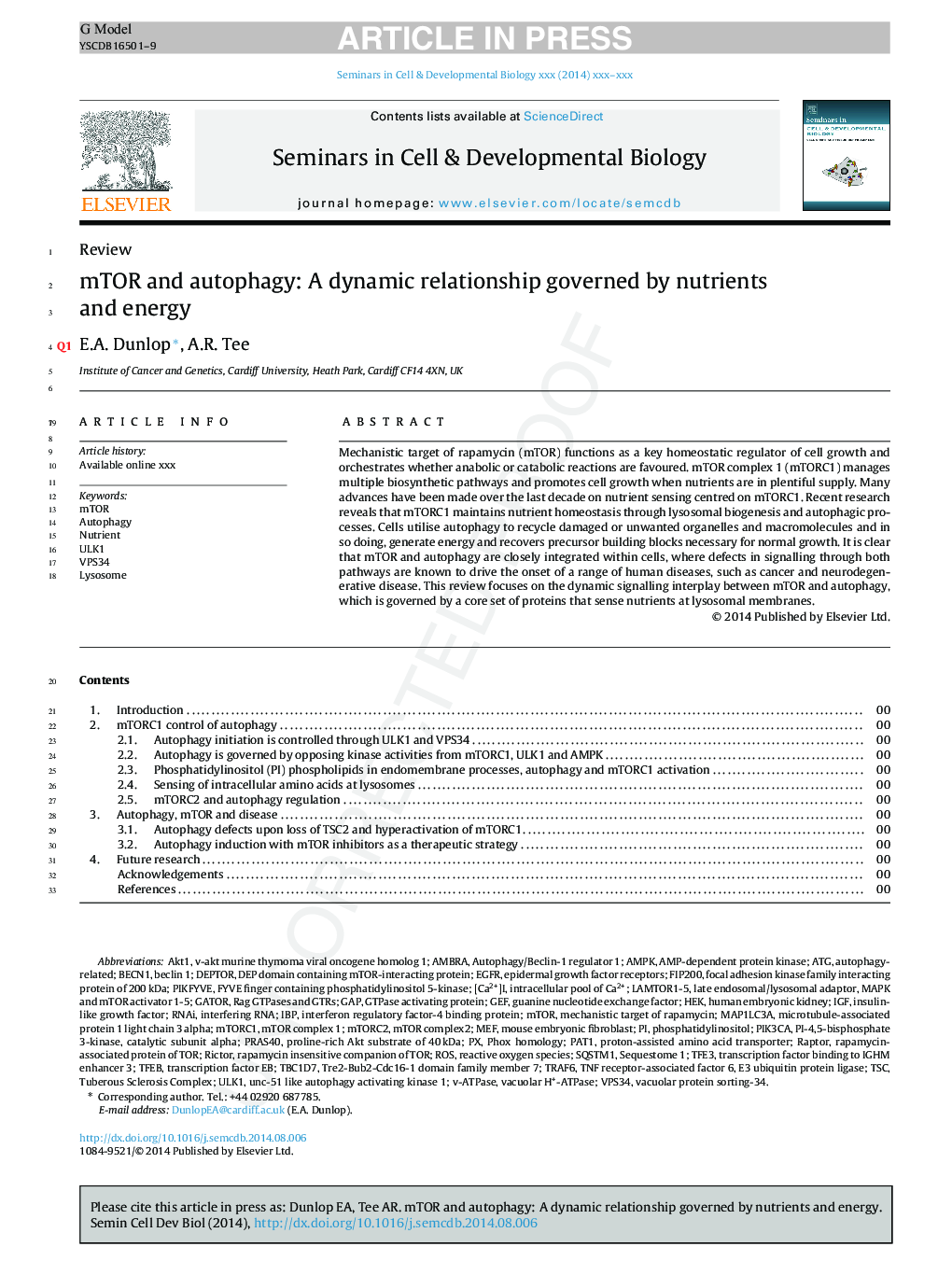| Article ID | Journal | Published Year | Pages | File Type |
|---|---|---|---|---|
| 8480501 | Seminars in Cell & Developmental Biology | 2014 | 9 Pages |
Abstract
Mechanistic target of rapamycin (mTOR) functions as a key homeostatic regulator of cell growth and orchestrates whether anabolic or catabolic reactions are favoured. mTOR complex 1 (mTORC1) manages multiple biosynthetic pathways and promotes cell growth when nutrients are in plentiful supply. Many advances have been made over the last decade on nutrient sensing centred on mTORC1. Recent research reveals that mTORC1 maintains nutrient homeostasis through lysosomal biogenesis and autophagic processes. Cells utilise autophagy to recycle damaged or unwanted organelles and macromolecules and in so doing, generate energy and recover precursor building blocks necessary for normal growth. It is clear that mTOR and autophagy are closely integrated within cells, where defects in signalling through both pathways are known to drive the onset of a range of human diseases, such as cancer and neurodegenerative disease. This review focuses on the dynamic signalling interplay between mTOR and autophagy, which is governed by a core set of proteins that sense nutrients at lysosomal membranes.
Keywords
PAT1ATGTRAF6Akt1PIK3CAmTORC1GEFULK1TFEBFIP200Vps34EGFRmTORC2SQSTM1TFE3BECN1PIKfyvePRAS40Interfering RNAproline-rich AKT substrate of 40 kDaDEP domain containing mTOR-interacting proteinmTORAMPKIGFMEFHEKV-ATPaseTSCIBPGTPase Activating ProteinmTOR complex 1RNAiROSunc-51 like autophagy activating kinase 1v-akt murine thymoma viral oncogene homolog 1Vacuolar H+-ATPase[Ca2+]iAutophagyBeclin 1NutrientRaptorRictorGAPTranscription factor EBguanine nucleotide exchange factorInsulin-like growth factorphosphatidylinositolLysosomeautophagy-relatedmouse embryonic fibroblastMechanistic target of rapamycinphox homologymicrotubule-associated protein 1 light chain 3 alphaAMP-dependent protein kinasehuman embryonic kidneyTuberous sclerosis complexDEPTORReactive oxygen speciesepidermal growth factor receptors
Related Topics
Life Sciences
Biochemistry, Genetics and Molecular Biology
Cell Biology
Authors
E.A. Dunlop, A.R. Tee,
